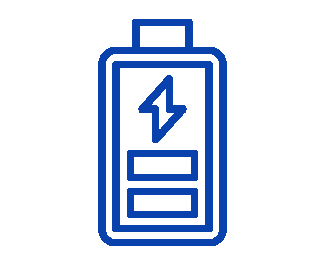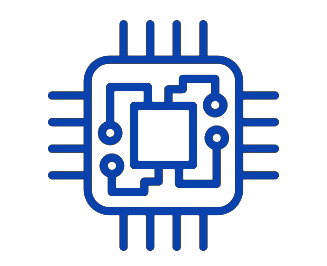Designed for customized parts processing
Rapid Tooling (RT) uses rapid prototyping technology to directly or indirectly create molds for small-scale production. It is characterized by the ability to quickly and cost-effectively develop temporary molds (made from aluminum or soft steel) needed for trial production or batch manufacturing. Due to its low development cost and short production time, RT extends the benefits of the R&D phase into the production stage. Additionally, mold modifications are inexpensive and fast, making RT ideal for products requiring low-volume, diversified production.
Advantages of Rapid Tooling:
a)⚡ High Precision: Capable of producing fine surface details, replicating the aesthetic quality of injection-molded parts.
b)⚡ Cost Efficiency: Minimizes traditional process costs and time, accelerating the product development cycle, making it an ideal choice for medium-batch production.
c)⚡ Versatility: Supports a wide range of materials, colors, and surface finishes, meeting customer customization requirements.
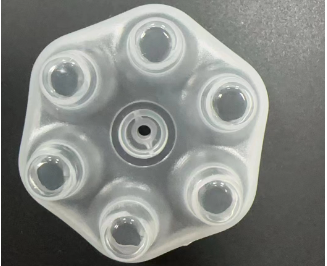
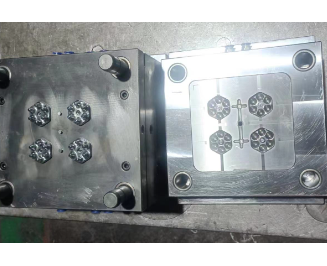
Scope of Services

We create realistic product models or prototypes based on customer-provided requirements and drawings. These models accurately replicate the intended design, allowing for detailed evaluation and testing before moving to mass production.

We can achieve medium-scale batch production of identical parts. Rapid tooling can produce approximately 10,000 to 20,000 pieces, while simple molds can handle 100,000 to 200,000 pieces.

We provide just-in-time production based on customer needs, minimizing storage and inventory costs. This approach ensures efficient production while reducing overhead related to warehousing and excess stock.
Basic Processing Materials
Plastics
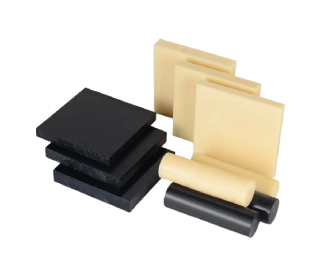
ABS is strong, durable, and offers good heat resistance and impact resistance, making it a preferred plastic for general parts and consumer products.
Common material choices:
a. ABS Plain Color
b. ABS White
c. ABS Black
d. ABS+PC Black
e. ABS+PC White
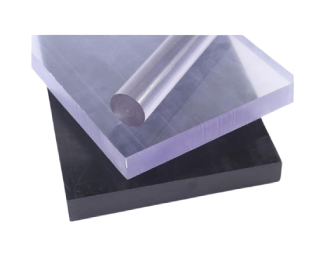
PC (Polycarbonate) is highly durable, offering excellent impact resistance and good transparency.
Common material choices:
a. PC Transparent
b. PC White
c. PC Black
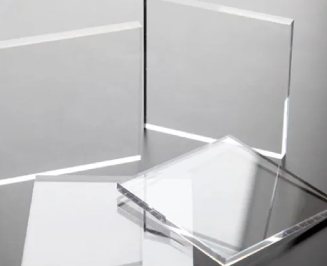
PMMA (Acrylic) is renowned for its crystal-clear transparency and excellent weather resistance.
Common material choices:
a. PMMA Transparent
b. PMMA White
c. PMMA Black
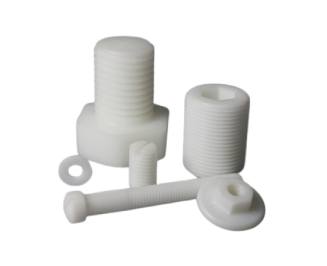
POM (Polyoxymethylene) is known for its high strength, low surface friction, and excellent dimensional stability, making it ideal for precision components in machinery.
Common material choices:
a. POM White
b. POM Black
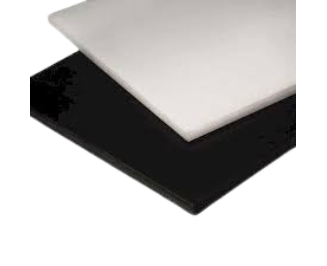
PA (Nylon) is widely used, strong, and wear-resistant, making it ideal for gears, bearings, and other high-wear surfaces.
Common material choices:
a. PA6
b. PA12
c. PA66
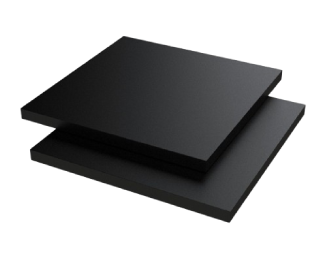
PE (Polyethylene) is lightweight with excellent impact resistance, making it widely used in packaging containers.
Common material choices:
◆ PE Black
◆ PE White
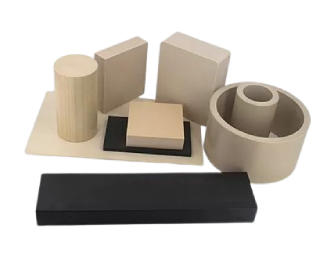
PEEK is renowned for its high-temperature resistance and strength, making it commonly used in semiconductor, aerospace, and medical device manufacturing.
Common material choices:
◆ PEEK Beige
◆ PEEK Black
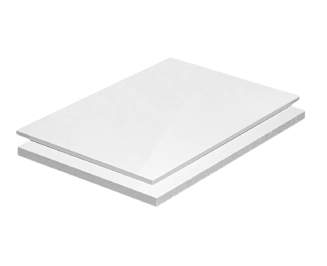
PP (Polypropylene) is tough and offers excellent chemical resistance, making it commonly used in parts and packaging that come into contact with chemical solvents.
Common material choices:
◆ PP Black
◆ PP White
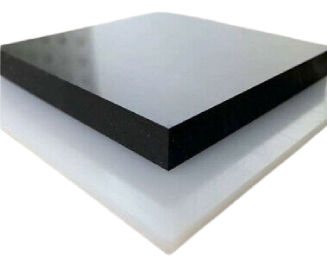
HDPE is known for its high strength-to-density ratio and impact resistance, making it commonly used in bottle manufacturing (including blow molding) and corrosion-resistant piping.
Common material choices:
◆ HDPE Black
◆ HDPE White
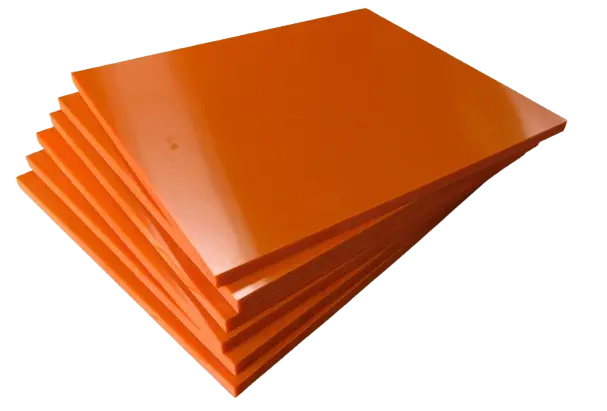
Bakelite is a high-hardness, heat-resistant thermosetting plastic known for its excellent insulation and chemical resistance. It is commonly used to produce electrical components (such as switches and sockets) and mechanical parts, especially in environments that require heat resistance and insulation.
🔧Common Material Options and Compatible Processes:
Bakelite – CNC machining, injection molding, compression molding
⚙️Basic Material Properties:
a. Flammability: Flammable, deformation temperature 150-200°C
b. Advantages: High heat resistance, excellent insulating properties, strong chemical resistance, dimensional stability
c. Disadvantages: High brittleness, prone to cracking, non-recyclable, challenging to process
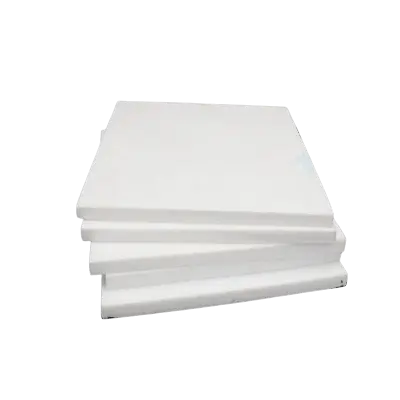
Teflon is a thermoplastic material with exceptional chemical stability, known for its high-temperature resistance and extremely low friction coefficient. It is widely used in applications requiring high chemical resistance, such as corrosion-resistant pipe linings, seals, and insulation layers.
🔧Common Material Options and Compatible Processes:
Teflon (PTFE) – CNC machining, turning, compression molding, machining
⚙️Basic Material Properties:
a. Flammability: Non-flammable, continuous use temperature range from -200 to 260°C
b. Advantages: Excellent high-temperature resistance, extremely low friction coefficient, strong chemical stability, non-absorbent, excellent electrical insulation
c. Disadvantages: Difficult to mold and process, low rigidity, limited load-bearing capacity, high thermal expansion coefficient
Material Properties and Surface Options
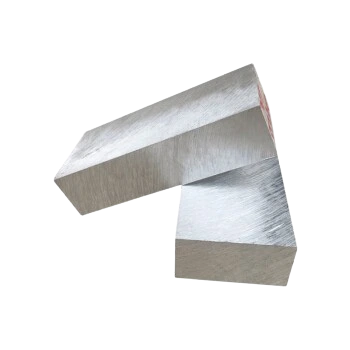
We provide a wide range of materials, including metals, plastics, and composites.
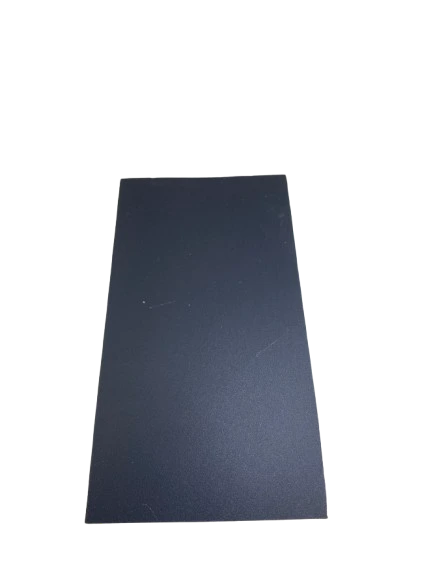
We offer superior surface finishes that enhance part durability and aesthetics for applications requiring smooth or textured surfaces.
Applied Industries
IDMockup offers top-notch manufacturing capabilities, whether for rapid prototyping or custom production orders. Our self-owned factories and satellite factories are equipped to efficiently produce complex, high-quality parts.
👉 For more about our latest news, technology and equipment, please follow our official Facebook, X (Twitter) and official blog!




